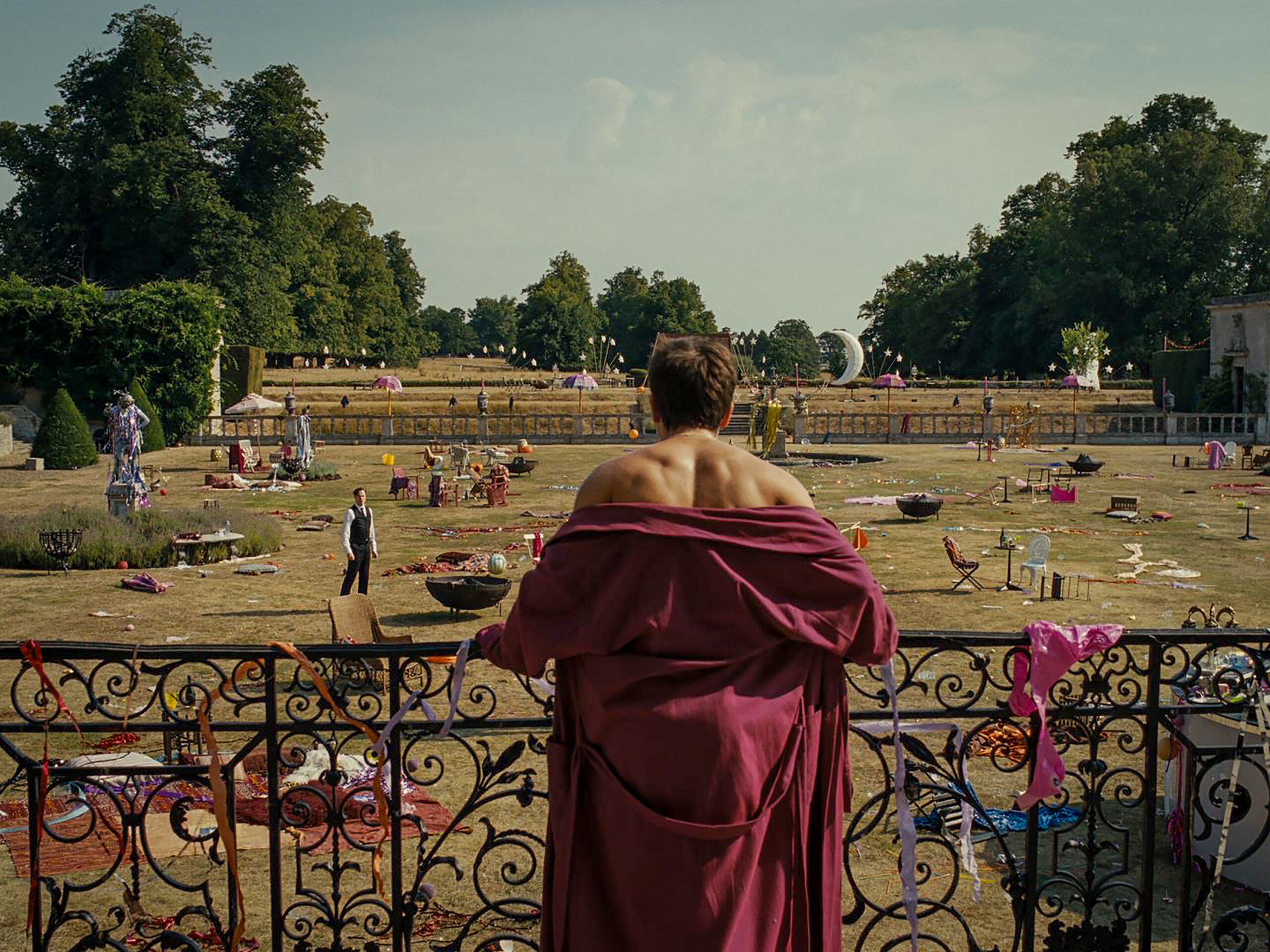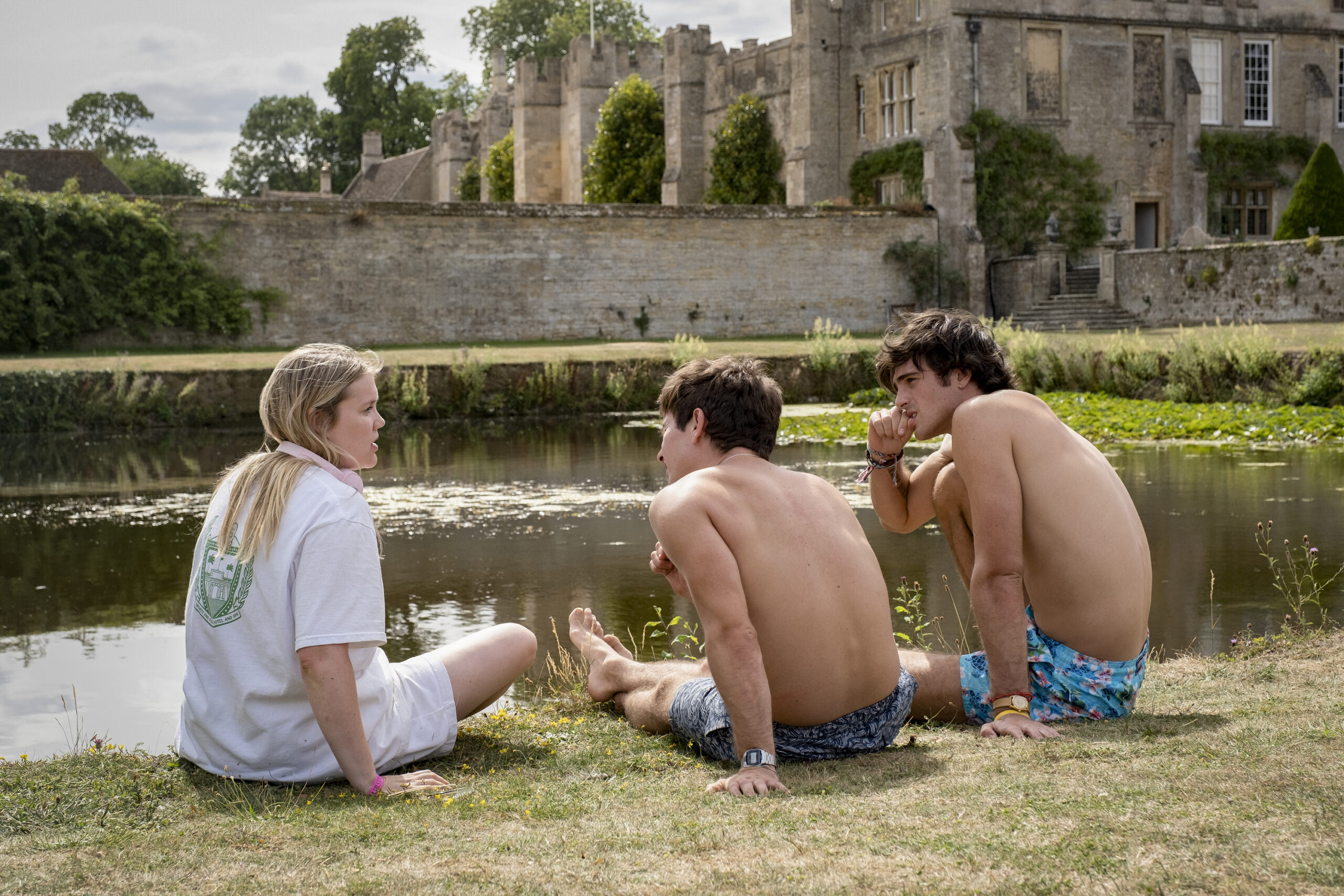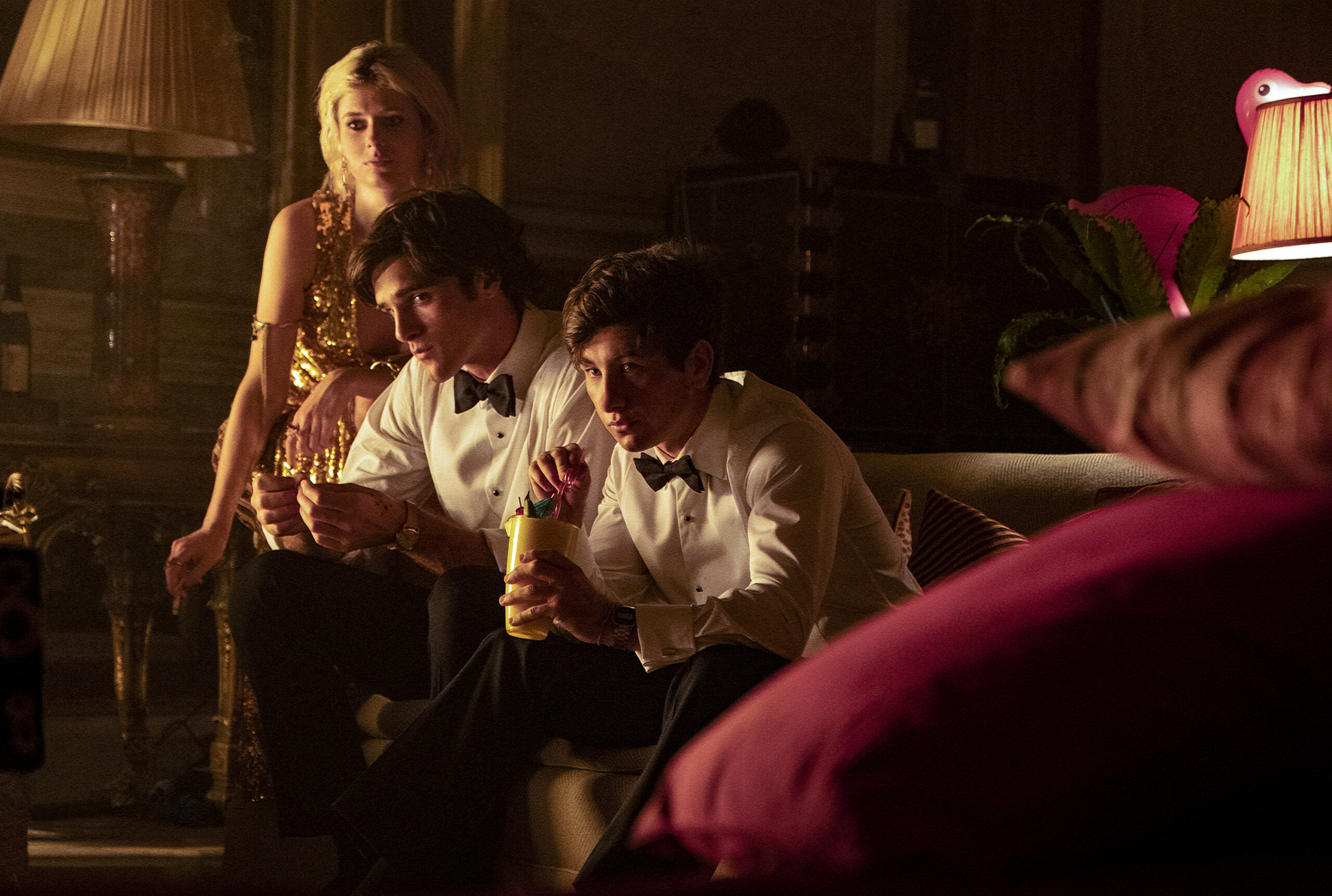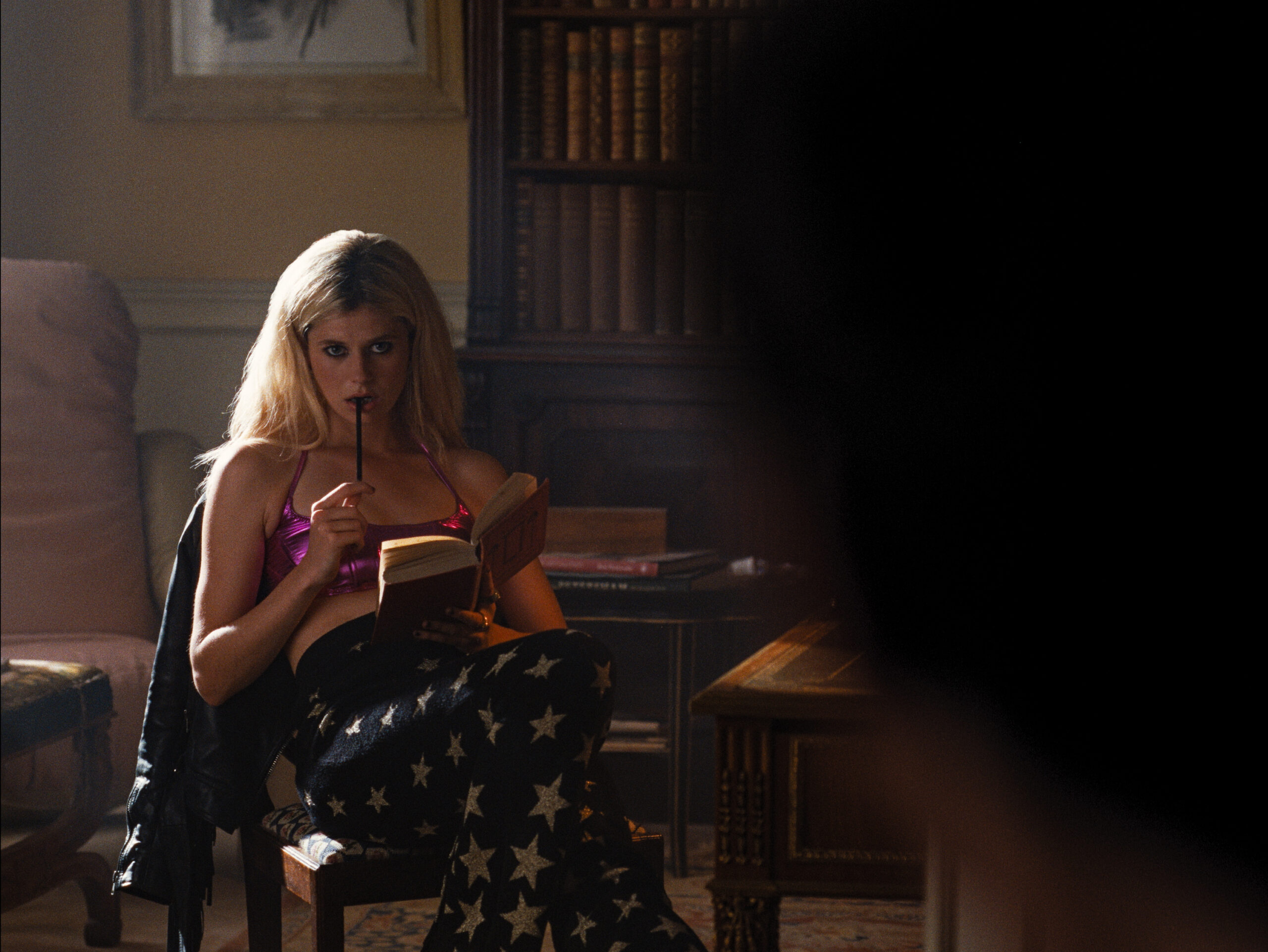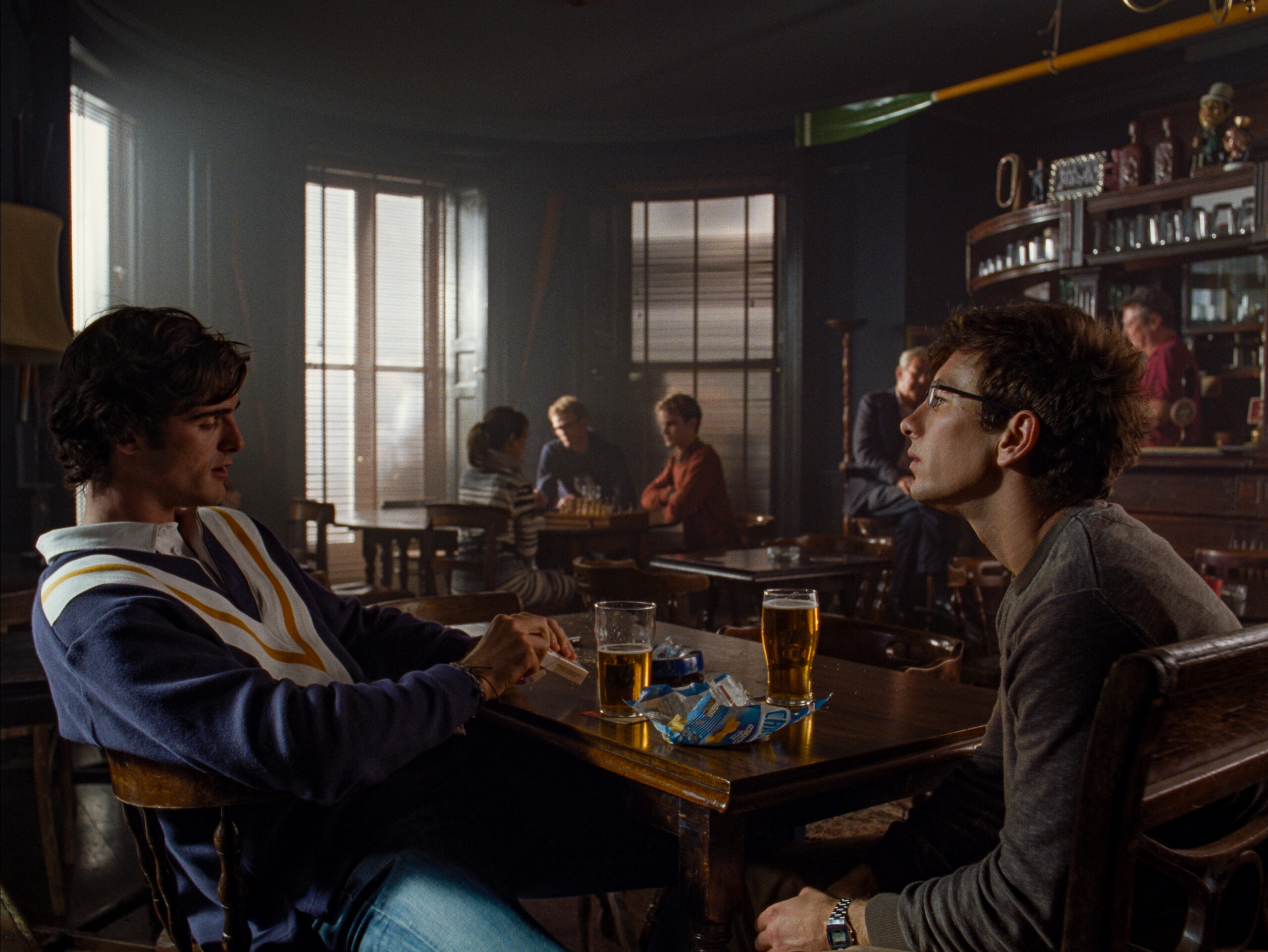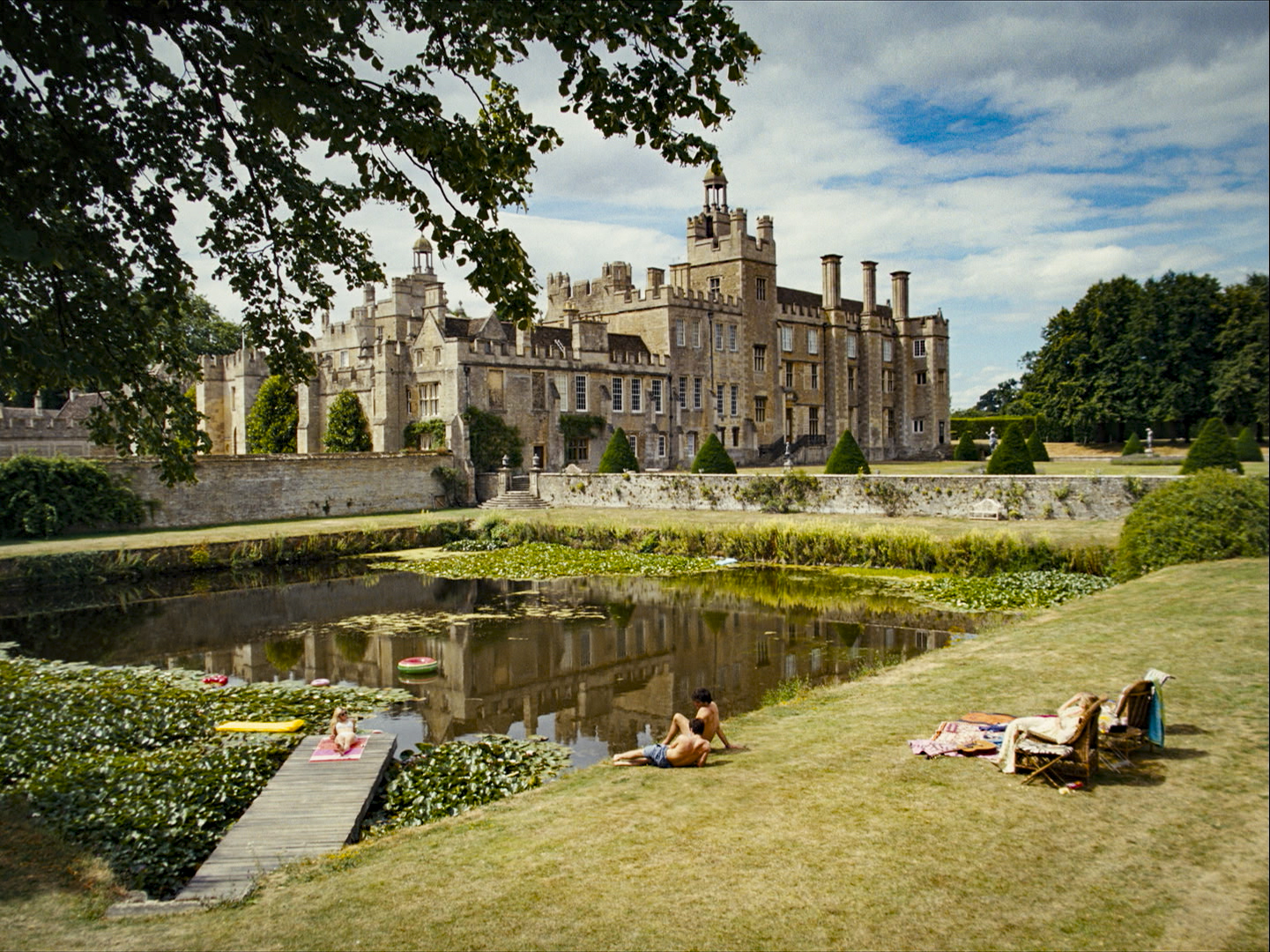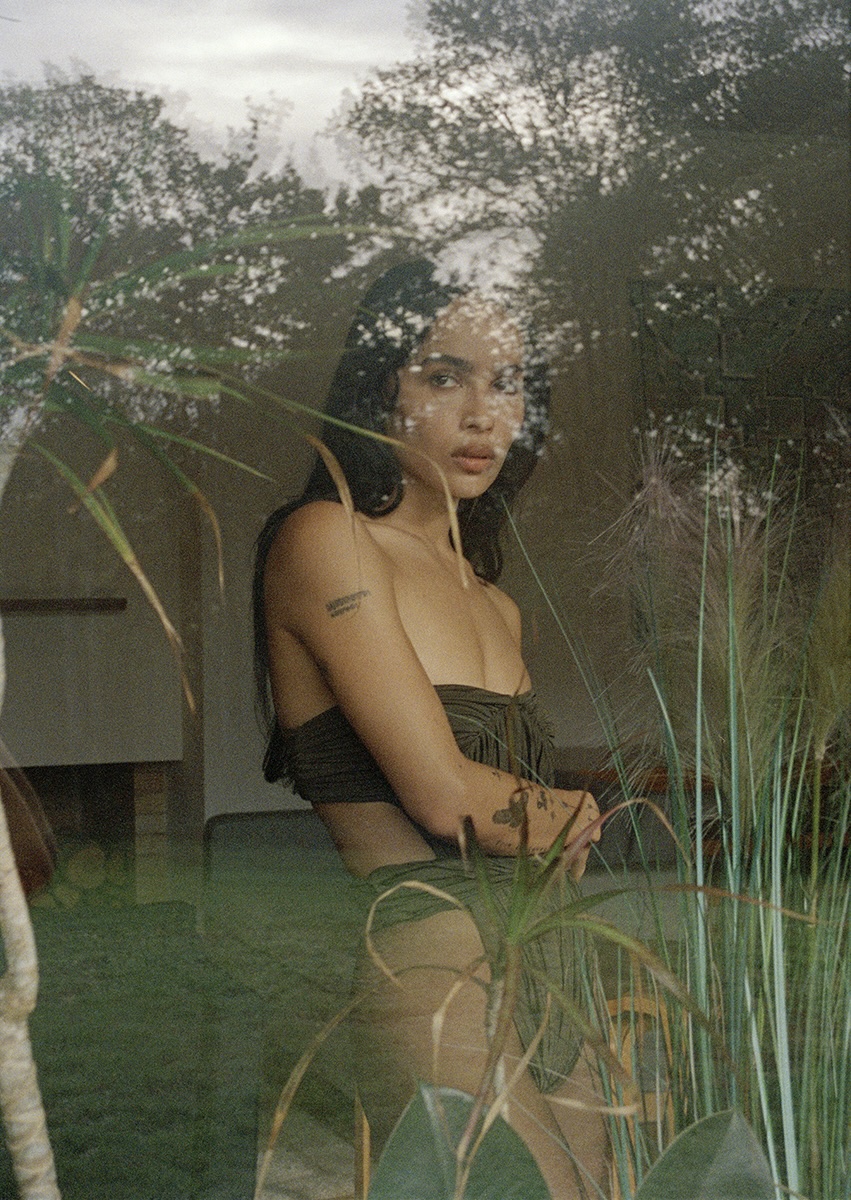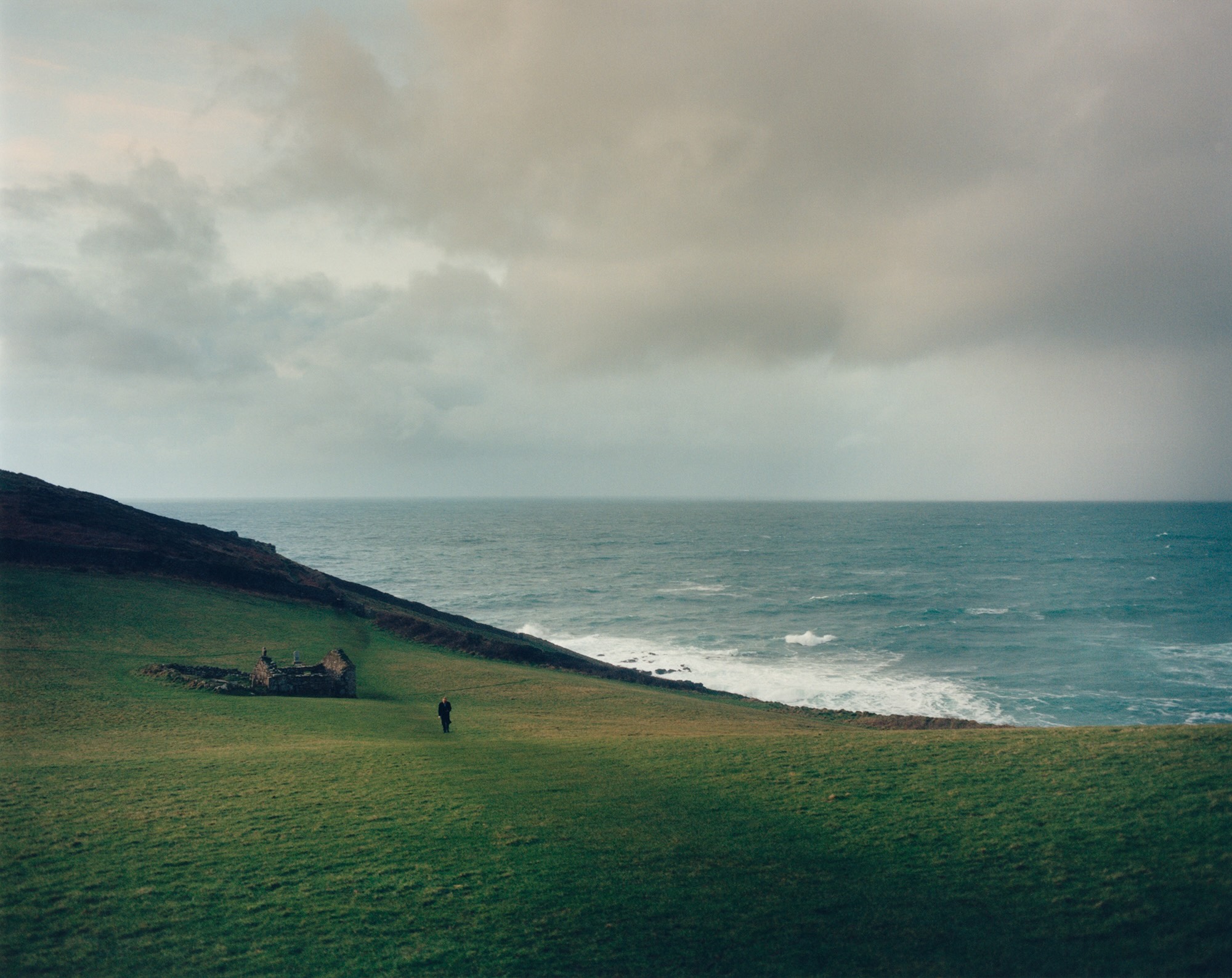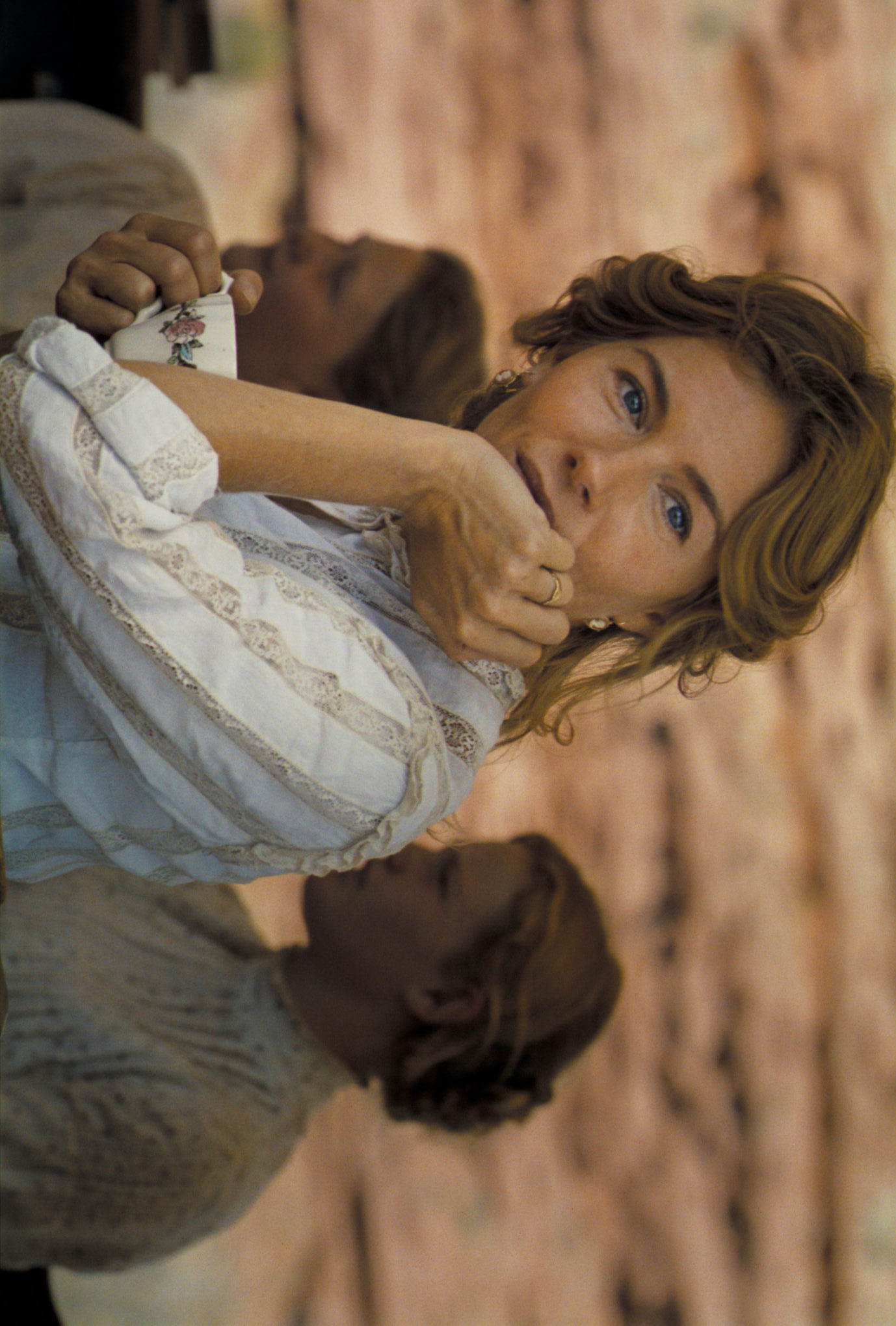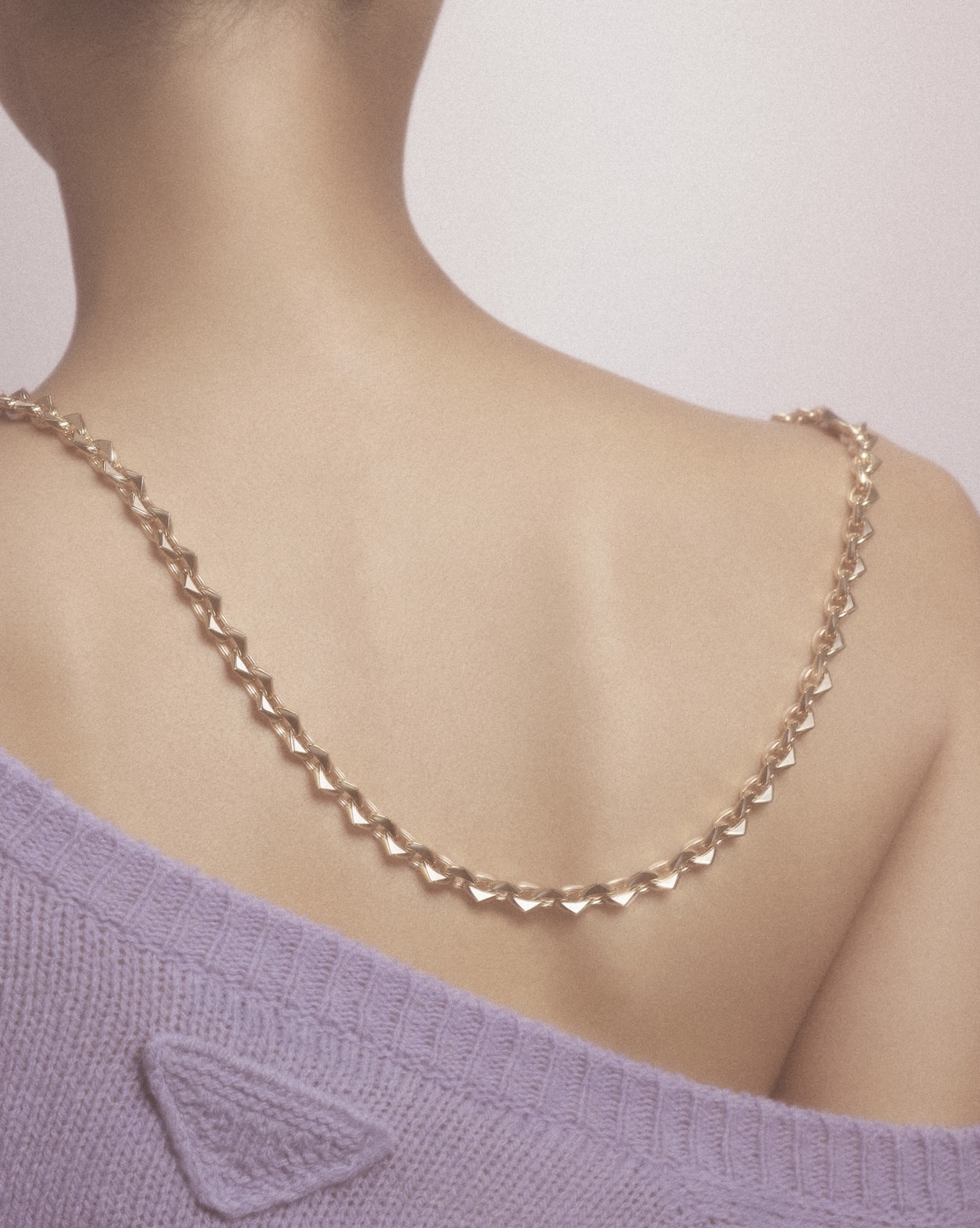As in the great novels of English literature, Saltburn takes its title from the estate where the tale takes place, an imposing castle where Richard III and Henry IV have passed, where the ghost of a familiar presence continues to hover. British director Emerald Fennell, after Promising Young Women, returns to astonish us with 1970s photography in stark, strong colors to tell us about English society with equal sharpness and fierce satire. To leading the film’s themes of violence, death and sex is, paradoxically, beauty. In Saltburn, aesthetics is everything as it’s for the English rich and bourgeois. To be attractive, to have power – their lives and what they can do is overwhelming, so much so that idealization of beauty is the only way forward.
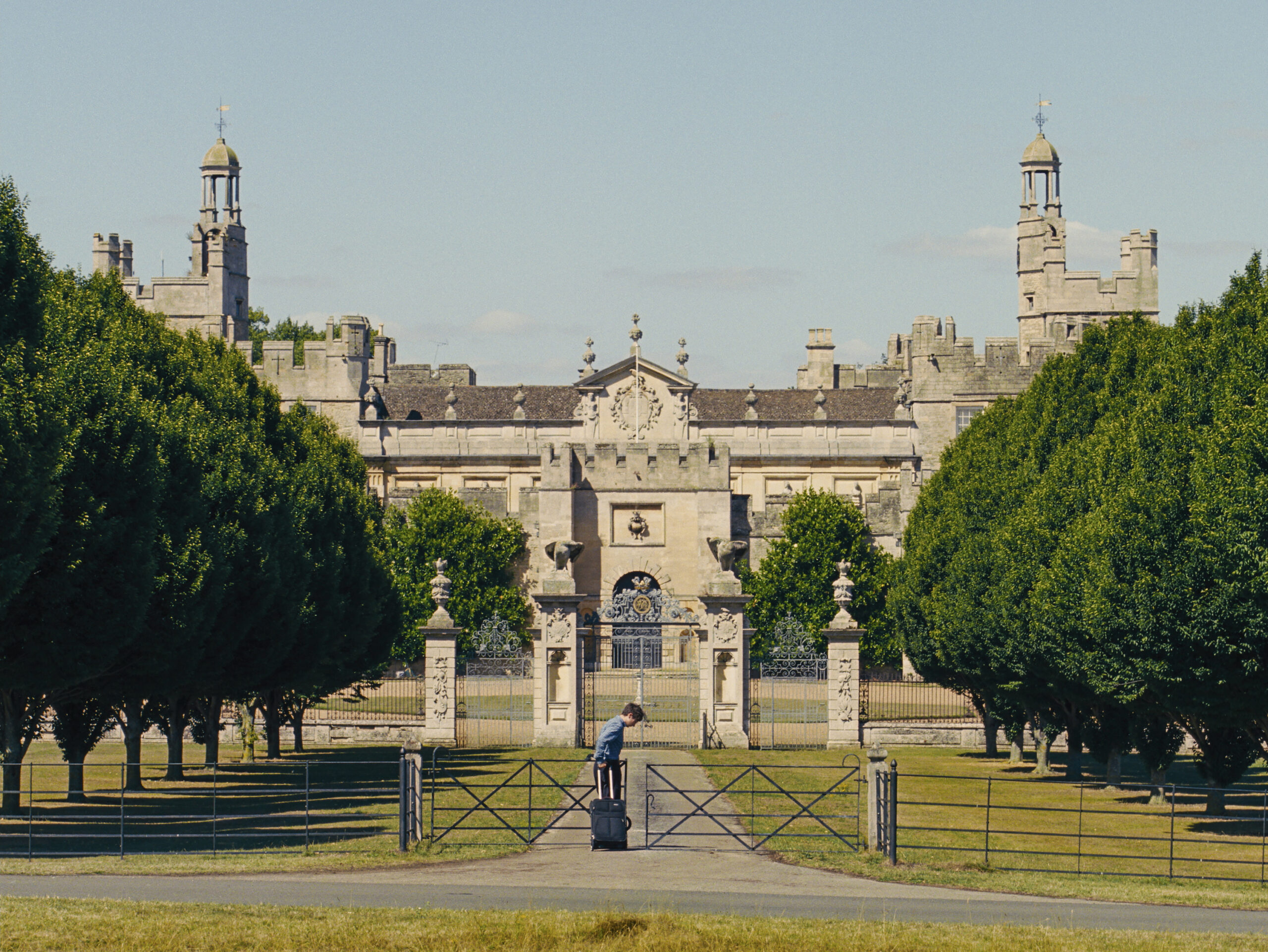
“I wanted to make a film about desire, about what we want and how we get it.”
Oliver Quick (Barry Keoghan) finds himself immediately drawn into the world of aristocrat Felix Catton (Jacob Elordi), who invites him to Saltburn for a summer that will be unforgettable. It is in this place laden with desire and perversion that Oliver will find his world, in the flesh exhibited by the statuesque Jacob Elordi who from executioner becomes the instrument for telling Oliver’s point of view, who is neither particularly handsome nor sophisticated. The newcomer to Oxford, he is connoted as the spectator from his first meeting with Felix. The boy is often motionless in the darkness of the rooms he inhabits: he emerges from the dark, just as if he were a listener in a blackness room, where a glance filtered through a screen is enough to be captured by the light emanating from Felix. This triggers a process of fetishization that represents the fans’ idealization of the star, which is condensed visually in the sequences in which Oliver recalls Felix. Between gothic and grotesque overtones, this story delves into social issues typical of contemporary avant-pop cinema-such as gender inequality-in a continuous interplay of references between cinema and literature. Fennell’s film is loaded with symbolism, such as the implicit dialogue – sometimes interrupted – with Guadagnino’s imagery. Impossible not to think of scenes from Call Me By Your Name when in Saltburn one spends a summer devoted to otium and self-exploration. A place outside the city that becomes a territory of investigation; on the Saltburn lawn the desires of bodies collide to take on carefree forms, clear from all representations.
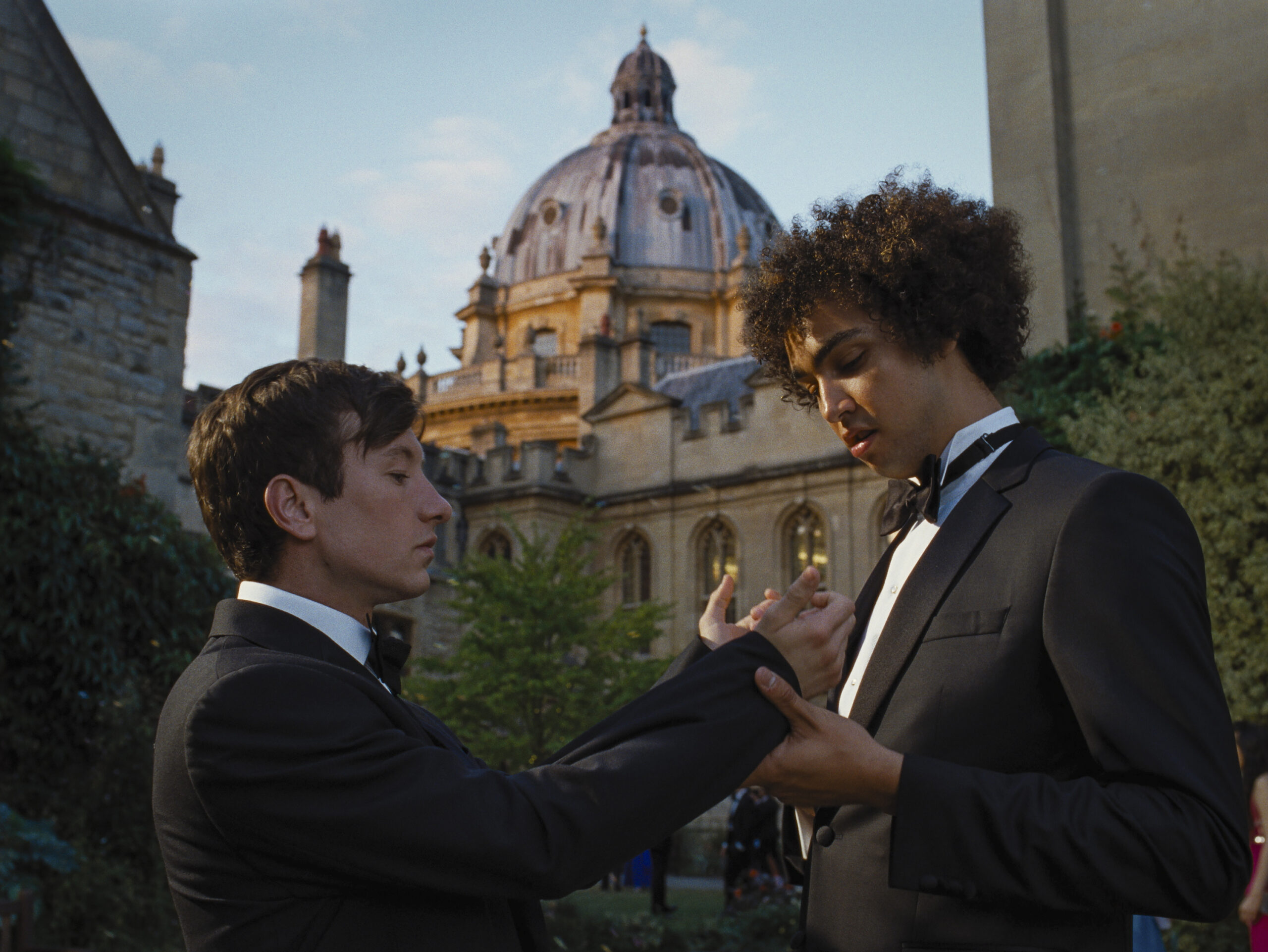
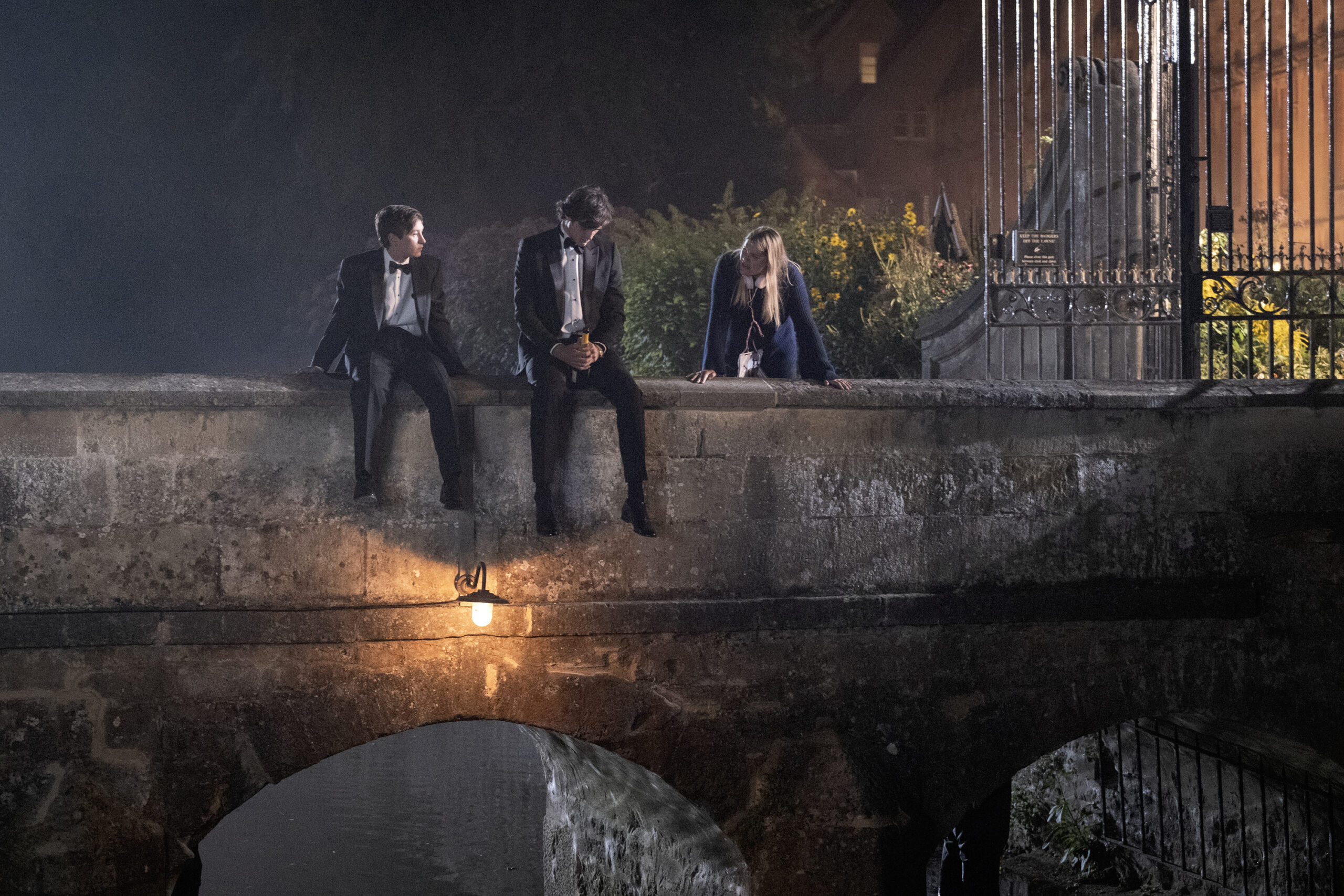
What captures one’s attention above all is the atmosphere and setting studied by the aforementioned cinematography of Linus Sandgren, complicit in the ability to recreate an entire dialogue with British heritage that immediately refers back to the costume reconstruction of The Remains of the Day, the explosion of countercultures and the underground avant-garde of English fashion. The gothic and sometimes vampire scenery traces the in-depth exploration of the eroticization of conflicts and the sexualization of bodies, such as the hot scene of the bath full of reference, (a more driven actualization) of the form of desire expressed by Silvana Mangano in Pasolini’s Theorem. Inside the chambers of the castle, Felix and Oliver’s bodies indulge themselves, often been in a small room to spend the time and then dressing up for dinner with the certainty of the outside: the boundless garden dominated by a labyrinth is clearly the allegory of the whole tale. Saltburn‘s meadow is indeed the space of the imagination in which you can experiment, for it is outside the walls of the home and thus in the absence of power logics that one can give breath to change and the fragile identity’s construction.
Money is everything and nothing in Saltburn but all people are clinging to an identity without which they cannot afford to live.
